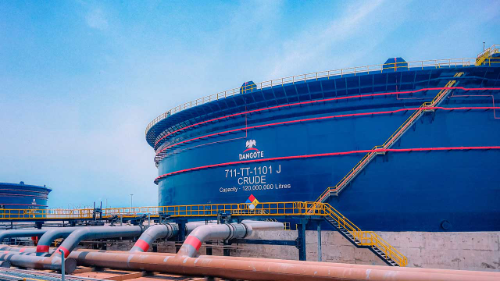Nigeria Imposes 15% Duty on Petrol Imports to Protect Local Refiners

TLDR
- Nigeria has introduced a 15% import duty on petrol and diesel to curb the importation of cheap fuel and support domestic refining
- The measure is part of broader fiscal reforms aimed at boosting non-oil revenue and strengthening the country’s energy self-sufficiency
- The duty follows last year’s removal of fuel subsidies and foreign exchange controls, marking another step in Nigeria’s transition toward a market-driven energy system
Nigeria has introduced a 15% import duty on petrol and diesel to curb the importation of cheap fuel and support domestic refining, according to a new government directive. The measure is part of broader fiscal reforms aimed at boosting non-oil revenue and strengthening the country’s energy self-sufficiency.
The duty follows last year’s removal of fuel subsidies and foreign exchange controls, marking another step in Nigeria’s transition toward a market-driven energy system. Officials say the new tariff will help stabilize the fuel market and protect local investors — notably the $20 billion Dangote Refinery, Africa’s largest, which began operations recently but has struggled to compete against cheaper imported fuel sold at a loss.
With petrol currently retailing at around ₦928 per litre, the new duty could raise prices by roughly ₦99 per litre, according to government estimates. Despite being Africa’s top oil producer, Nigeria remains heavily reliant on imported refined products.
Daba is Africa's leading investment platform for private and public markets. Download here
Key Takeaways
Nigeria’s 15% import duty represents a pivotal shift in its downstream oil strategy, aimed at incentivizing domestic refining after decades of dependence on imports. By raising the cost of imported fuel, the government hopes to create a level playing field for new refineries — including Dangote and modular facilities under development — and encourage local production. However, the policy could push pump prices higher in the short term, testing public tolerance following subsidy removal and ongoing inflationary pressures. Economists warn that the success of this measure will depend on ensuring consistent refinery output and reliable distribution to prevent shortages. The reform also aligns with broader fiscal efforts to expand non-oil revenue and attract industrial investment under Nigeria’s medium-term economic plan. If implemented effectively, it could mark a turning point toward energy security and downstream profitability — but also risks intensifying living-cost pressures in an already fragile consumer environment.

Next Frontier
Stay up to date on major news and events in African markets. Delivered weekly.
Pulse54
UDeep-dives into what’s old and new in Africa’s investment landscape. Delivered twice monthly.
Events
Sign up to stay informed about our regular webinars, product launches, and exhibitions.




